
When it comes to household chores, washing dishes is one of the most common and mostly done tasks. Nowadays, with the advent of modern dishwashing machines, this area has become even more convenient for most people. However, there are still some common issues that may arise, such as the presence of white chalky residue on dishes after they are washed.
There are several potential causes for this problem that you must be aware of. One possible cause is the use of hard water, which contains high mineral content. Instead of dissolving completely, these minerals can accumulate on your dishes and leave behind a white chalky film. Another potential cause is the use of improper dishwashing detergents or dirty filters in your dishwasher. These factors can cause incomplete rinsing and result in blemishes or stains on your dishes.
If you are experiencing this issue, there are several steps you can take to resolve it. First, make sure to clean your dishwasher thoroughly and regularly, including the filter. You may also want to consider switching to a high-quality dishwashing detergent that is specifically designed to combat hard water deposits. Using rinse aids or adding some salt to your dishwasher may also be useful in preventing the accumulation of white chalky residue on your dishes.
Finally, if the problem persists, you may need to check your water filtration system or consider installing one. The filtration system will help remove excess minerals from the water, thereby minimizing the chances of white residue appearing on your dishes. Following these expert tips and adopting proper dishwashing practices will ensure that your dishes come out sparkling clean without any white chalky residue.
Common Causes of White Chalky Residue on Dishes
If you’ve noticed a white chalky residue on your dishes after running them through the dishwasher, don’t worry – you’re not alone. This is a common problem that many people experience. In this article, we’ll explore the most common causes of this issue and offer expert advice on how to prevent and resolve it.
1. Hard Water
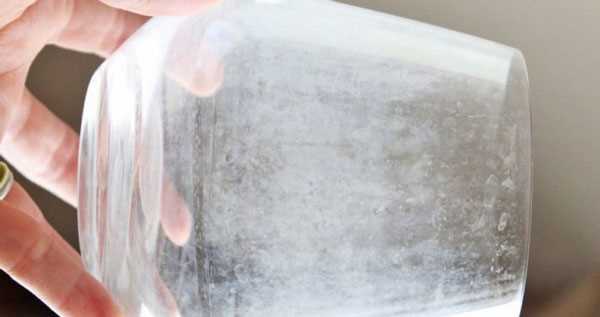
One of the most common causes of white chalky residue on dishes is hard water. Hard water contains high levels of minerals like calcium and magnesium, which can leave behind a white film. To test if you have hard water, fill a glass with water and let it sit for a few minutes. If you notice a white residue at the bottom of the glass, it’s a sign of hard water.
To address this issue, you can use a water softener or add a water softening additive to your dishwasher. You can also try using vinegar as a natural cleaning agent. Simply add some vinegar to the dishwasher during the rinse cycle to help remove the mineral deposits.
2. Improper Detergent Use
Using too much or too little detergent can also result in white chalky residue on your dishes. Make sure you’re using the right type and amount of detergent recommended for your dishwasher. Additionally, check for any detergent build-up in your dishwasher’s dispenser or filter and clean them regularly to prevent residue accumulation.
3. Dishwasher Problems
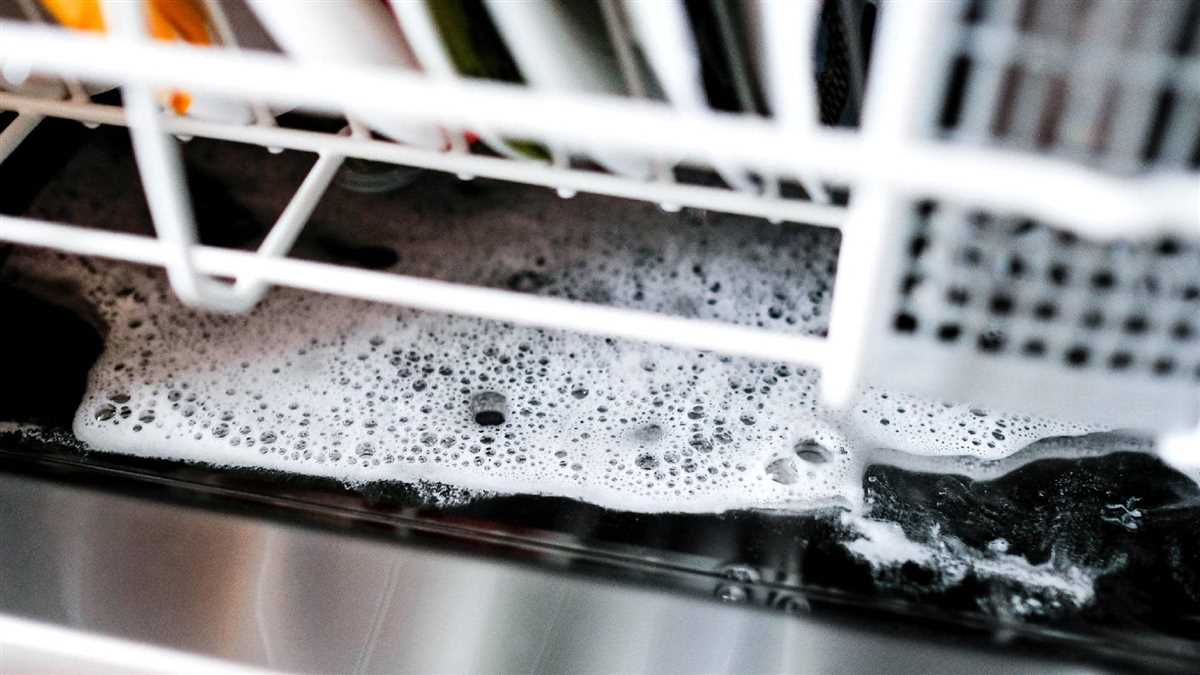
If your dishwasher is not functioning properly, it may not be able to dissolve detergent completely or rinse dishes thoroughly, resulting in residue left behind. Ensure that your dishwasher is working efficiently by regularly cleaning and descaling it. You can use a dishwasher cleaner or a mixture of baking soda and water to descale the interior of your dishwasher.
4. Old or Improperly Stored Dishes
Old or poorly stored dishes can also contribute to the white chalky residue problem. When dishes are not used regularly, dust and other particles can settle on them, which can result in residue. To prevent this, clean your dishes regularly, and store them in a clean and dry area.
In conclusion, there are several common causes of white chalky residue on dishes. By addressing the issues related to hard water, improper detergent use, dishwasher problems, and old or improperly stored dishes, you can keep your dishes clean and free from residue. Remember to follow the manufacturer’s instructions, use proper cleaning products, and regularly maintain your dishwasher for better results.
Possible Causes of Chalky Residue on Dishes
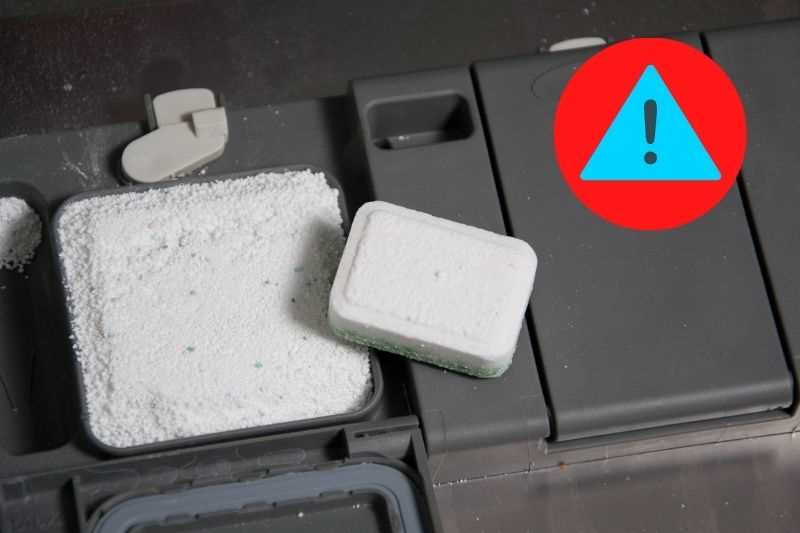
If you have noticed a chalky residue on your dishes after running them through the dishwasher, there are several possible causes to consider. Understanding these causes can help you troubleshoot the issue and prevent it from happening again in the future.
1. Manual Cleaning
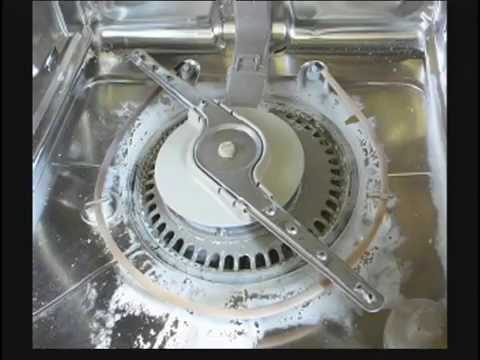
One common cause of chalky residue on dishes is inadequate pre-cleaning before placing them in the dishwasher. If your dishes have food residues or grease on them, the dishwasher detergent may not be able to fully dissolve and remove these substances, resulting in a chalky residue.
Recommendation: Make sure to scrape off excess food and rinse your dishes before loading them into the dishwasher. This helps to minimize the amount of food build-up that can cause the chalky residue.
2. Incorrect Detergent Dosage
The amount of detergent you use in your dishwasher can also affect the cleanliness of your dishes. Using too little or too much detergent can result in a chalky residue. Additionally, using the wrong type of detergent that is not compatible with your dishwasher can cause similar issues.
Recommendation: Read the dishwasher manufacturer’s instructions and follow the recommended detergent dosage. Also, use a high-quality detergent that is appropriate for your dishwasher model.
3. Hard Water Minerals
Another common cause of chalky residue is hard water minerals. If your water has a high mineral content, such as calcium and magnesium, these minerals can leave behind a white residue on your dishes.
Recommendation: Consider using a rinse aid or adding a water softener to your dishwasher to help minimize the effects of hard water minerals. Regularly descaling your dishwasher can also help prevent build-up.
4. Outside Agent
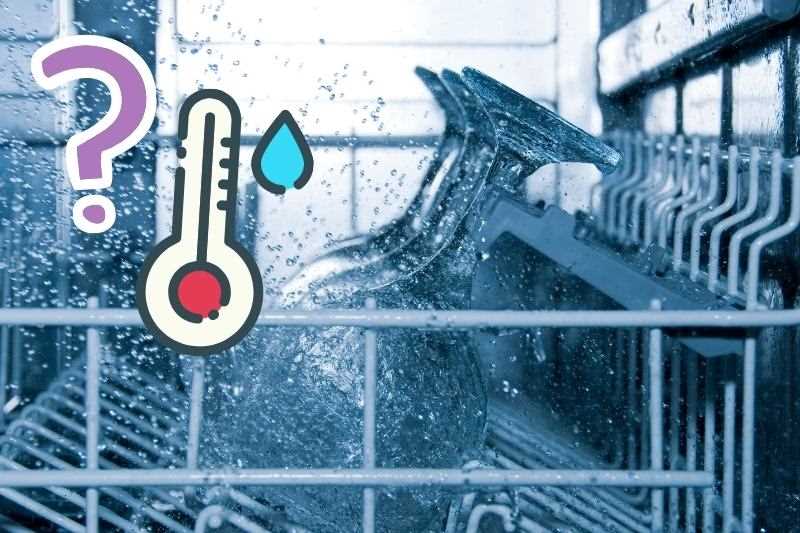
If your dishwasher has recently been serviced or if you have used any new cleaning agents in the dishwasher, they may be the reason for the chalky residue on your dishes. Some cleaning agents or dishwasher cleaners can leave behind a chalky residue when not rinsed off properly.
Recommendation: Check the dishwasher’s finish to make sure it hasn’t been accidentally damaged. If you suspect an outside agent as the cause, try to switch back to your regular dishwashing routine and see if the issue improves.
By addressing these possible causes of chalky residue on your dishes, you can ensure that your dishwasher is working properly and your dishes come out clean and spot-free.
Hard Water and Chalky Residue on Dishes
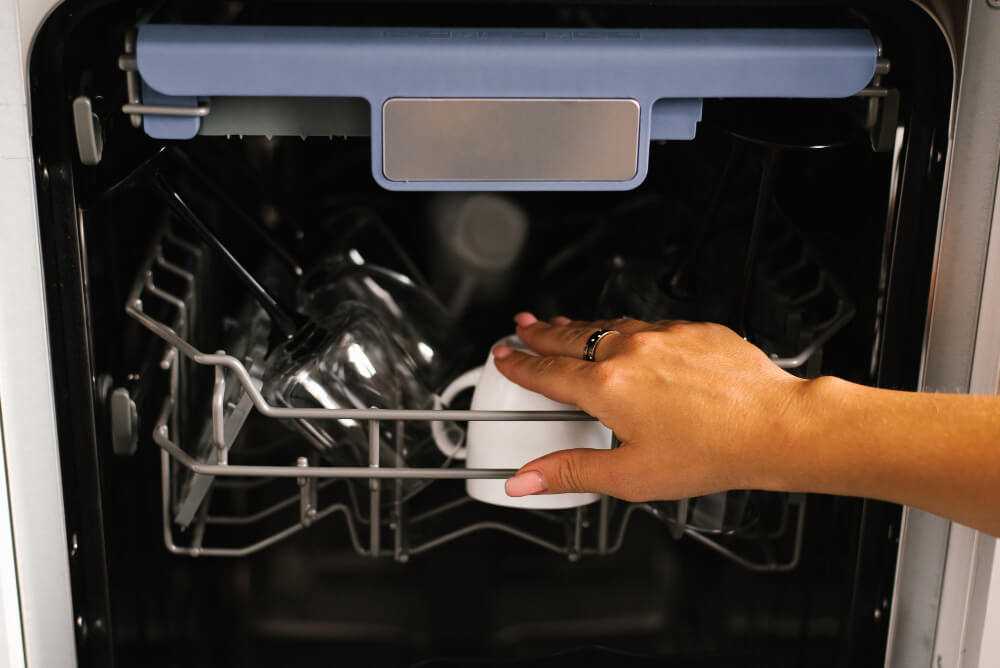
One of the most common causes of white chalky residue on dishes is hard water. When hard water is used to wash dishes, it can leave behind mineral deposits that dry into a white residue. This can be especially problematic in areas with high water hardness.
There are a few ways to minimize the impact of hard water on your dishes. One option is to use a water softener, which will help to remove some of the minerals in the water. Another option is to use a rinse aid in the dishwasher, as this can help to prevent mineral buildup.
If you don’t have a dishwasher, you can try using a vinegar spray to remove the residue. Simply mix equal parts water and vinegar, spray it on the dishes, and wipe clean with a cloth. This can be especially useful for removing stubborn stains or buildup.
If you have already cleaned your dishes and there is still a white residue, it may be a result of inadequate rinsing. Make sure to thoroughly rinse your dishes with hot water to ensure that all of the detergent and mineral buildup is removed.
In some cases, the type of dishwashing detergent you are using may also contribute to the chalky residue. Some detergents are not as effective at dissolving mineral deposits, so switching to a different brand or type may help eliminate the problem.
Another tip is to let your dishes soak in hot water with lemon juice overnight. The acid in the lemon juice can help to dissolve any mineral deposits and leave your dishes sparkling clean.
If you have tried all of these tips and the white residue on your dishes hasn’t improved, it may be worth considering a professional cleaning. A professional dishwasher cleaning can help to remove any mineral deposits that have built up in the machine over time.
In conclusion, hard water is one of the main causes of white chalky residue on dishes. By using a water softener, using a rinse aid, or switching to a different dishwashing detergent, you can minimize the impact of hard water on your dishes. If all else fails, a professional cleaning may be the right way to go. Don’t let hard water deposits ruin your dishes – try these tips and enjoy spotless, clean plates and glasses!
Dishwashing Detergents and Chalky Residue
One of the most common causes of white chalky residue on dishes is the dishwashing detergent used. If you have noticed that your dishes are often left with a white chalky residue after they are washed, it is important to evaluate the type of cleaning product you are using and the way your dishes are being washed.
Firstly, it is important to ensure that you are using the proper amount of detergent. If you do not use enough detergent, it may not fully dissolve and will leave behind a residue. On the other hand, if you use too much detergent, it can also lead to residue buildup on your dishes.
Another factor to consider is the hardness of your water. Hard water contains a high amount of minerals, such as calcium and magnesium, which can contribute to the chalky residue. If you have hard water, you may want to consider adding a water softening additive to your dishwasher to help eliminate the limescale deposits.
Additionally, the type of detergent you are using can also play a role in the chalky residue. Some detergents contain additives that are designed to protect glassware and leave them sparkling clean. However, if these additives are not rinsed off properly, they can leave behind a chalky residue.
If you are using a dishwasher, it is important to run it on the proper cycle and schedule. Running your dishwasher on a shorter cycle or not using the proper cleaning settings may result in residue buildup. It is also important to regularly clean the dishwasher filter to ensure that it is functioning properly and not contributing to the chalky residue.
If you are washing dishes by hand, make sure to thoroughly rinse them after using dishwashing detergent. Leaving any residual detergent on the dishes can lead to the chalky residue.
If you have tried adjusting your detergent dosage, adding a water softening additive, and properly running your dishwasher or washing dishes by hand, but the chalky residue issue still persists, it may be worth considering switching to a different type of dishwashing detergent.
Lastly, it is worth considering any health-related factors that may be contributing to the chalky residue. For example, if you or someone in your household accidentally consumes a small amount of detergent residue left on the dishes, it is possible that it may lead to health issues. If you have any concerns, it is best to consult a healthcare professional.
To summarize, the most common causes of white chalky residue on dishes are improper detergent dosage, hard water, additives in the detergent, improper dishwasher schedule, and health-related issues. By following the tips mentioned above and thoroughly cleaning your dishes, you can eliminate or reduce the occurrence of chalky residue and keep your kitchenware clean and sparkling.
Mineral Deposits and Chalky Residue on Dishes
One of the common causes of white chalky residue on dishes is mineral deposits. These deposits are often a result of hard water, which contains high levels of minerals such as calcium and magnesium. When hard water is used to wash dishes, these minerals can leave behind a chalky residue on the surfaces.
Hard water stains and blemishes can appear on dishes, glassware, and utensils, particularly in areas where the water is naturally hard. If you notice a white film or chalky residue on your dishes after running them through the dishwasher, it’s likely due to mineral deposits.
To remove mineral deposits and chalky residue from dishes, there are a few possible solutions you can try:
- Use a dishwasher cleaner: There are dishwasher cleaning products available on the market that are specifically designed to remove mineral buildup. Follow the instructions provided on the product to ensure proper usage and effectiveness.
- Run a vinegar cycle: Fill a cup with white vinegar and place it in the bottom rack of the dishwasher. Run a regular cycle without any dishes. The acidity of the vinegar helps to dissolve mineral deposits and remove chalky residue.
- Check the dishwasher filter: A clogged or dirty dishwasher filter can contribute to mineral buildup and residue on dishes. Regularly check and clean the dishwasher filter to ensure it is free from debris.
- Use a water softener: Installing a water softening system in your home can help prevent mineral deposits and chalky residue on dishes. Water softeners remove the minerals that cause hardness in the water, resulting in cleaner dishes.
It’s also important to note that using too much detergent or not using the right type of detergent can contribute to the accumulation of mineral deposits. Follow the dishwasher manufacturer’s guidelines and use the recommended amount and type of detergent.
If you have tried the above solutions and still have issues with chalky residue on your dishes, there may be other potential causes that need to be explored. In such cases, it may be helpful to consult a professional for further guidance and assistance.
In conclusion, mineral deposits and chalky residue on dishes are often caused by hard water. Taking proper care of your dishwasher, using the right detergents, and implementing preventive measures can help minimize and remove these deposits, resulting in cleaner and spot-free dishes.
Preventing Chalky Residue on Dishes
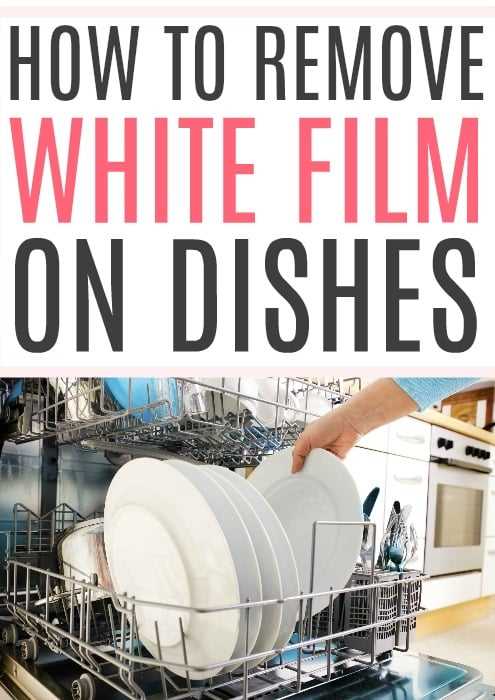
If you’ve noticed a white chalky residue on your dishes after washing them, there are several steps you can take to prevent this issue from occurring. By following these tips and recommendations, you can ensure that your dishes come out clean and free from any unwanted residue.
1. Adjust the Amount of Detergent
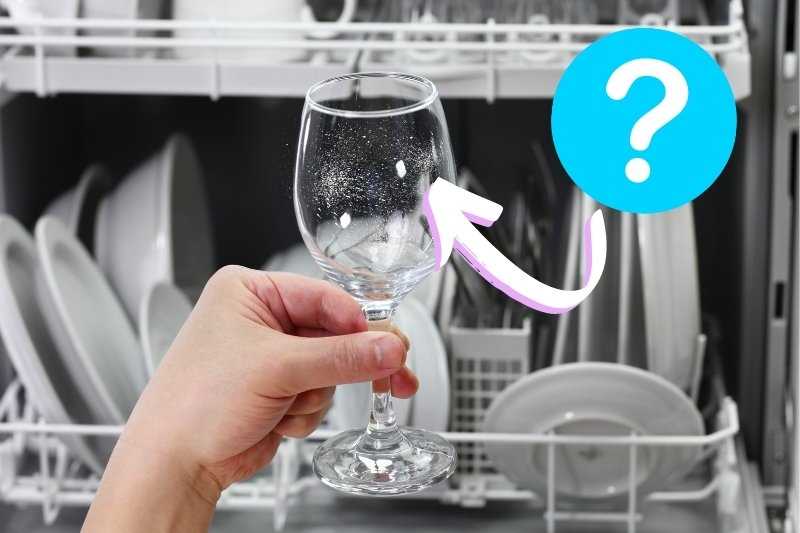
One common cause of chalky residue is using too much detergent. Excessive amounts of detergent can leave behind a film on your dishes. To prevent this, adjust the dosage according to the manufacturer’s recommendations. It is also important to note that different types of detergent have different dosage requirements, so make sure to read the instructions on the product package.
2. Use Hot Water
Hot water can help dissolve the detergent more effectively, leading to cleaner dishes. Be sure to check the temperature setting on your dishwasher and adjust it accordingly to ensure the water is hot enough.
3. Check the Water Hardness
Hard water is often the cause of chalky residue on dishes. Hard water contains minerals that can leave behind stains and blemishes. If you have hard water, consider using a water softener or a dishwashing detergent specifically designed for hard water conditions.
4. Clean Your Dishwasher Regularly
A dirty dishwasher can transfer residue to your dishes, so it’s essential to keep your dishwasher clean. Regularly wipe down the interior surfaces, including the door and the racks. Check and clean the filter regularly to prevent clogged filters from affecting the cleaning results.
5. Rinse Dishes Thoroughly
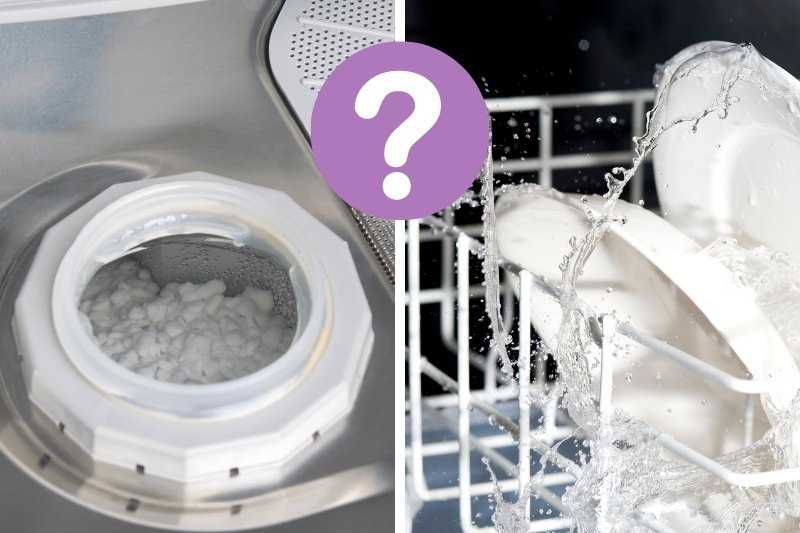
Before placing your dishes in the dishwasher, make sure to rinse them well. Removing any food particles or debris can help prevent them from being redeposited onto the dishes during the wash cycle.
6. Consider Adding a Rinse Aid
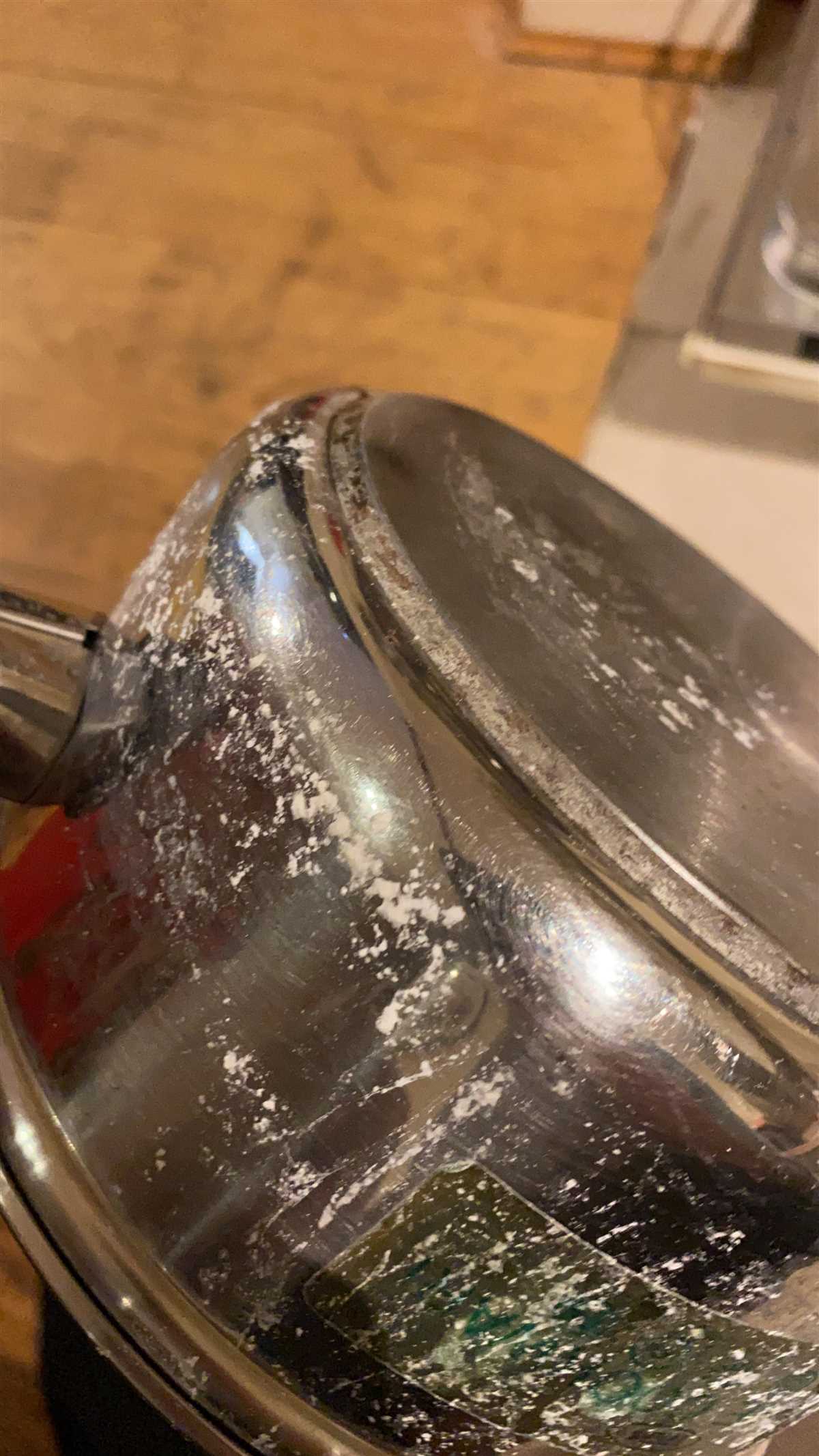
Using a rinse aid can help prevent the formation of chalky residue and film on your glasses and dishes. Rinse aids act as a drying agent and can also help in preventing water spots. Follow the manufacturer’s instructions on the usage and dosage of the rinse aid.
By following these preventive measures and incorporating them into your regular dishwashing schedule, you can ensure that your dishes come out clean and residue-free.
FAQ
What causes white chalky residue on dishes?
White chalky residue on dishes is typically caused by hard water. It occurs when the minerals in the water, such as calcium and magnesium, build up on the dishes after they have been washed and dried.
How can I prevent white chalky residue on my dishes?
To prevent white chalky residue on your dishes, you can use a rinse aid in your dishwasher. Rinse aids help to eliminate the minerals in the water and prevent them from depositing on the dishes. Additionally, you can try using a water softener to reduce the hardness of your water.
What should I do if I already have white chalky residue on my dishes?
If you already have white chalky residue on your dishes, you can try soaking them in a mixture of vinegar and water. The acidity of the vinegar helps to dissolve the mineral deposits. You can also try scrubbing the dishes with baking soda, which acts as a gentle abrasive.
Can using too much detergent cause white chalky residue?
Yes, using too much detergent can contribute to the formation of white chalky residue. When you use too much detergent, it can create a film on the dishes that attracts and traps minerals from the water, leading to the chalky residue.
Do all dishwashers cause white chalky residue?
No, not all dishwashers cause white chalky residue. The likelihood of experiencing residue depends on the hardness of the water in your area and the effectiveness of your dishwasher’s rinse cycle. Some dishwashers have built-in water softeners or rinse aids dispensers to help combat residue.
Is white chalky residue harmful if consumed?
No, white chalky residue is not harmful if consumed. It is simply mineral deposits that have been left behind on the dishes. However, it can affect the taste and appearance of your food, so it is best to remove the residue for optimal dining experience.
Can white chalky residue be removed by hand washing the dishes?
Yes, white chalky residue can be removed by hand washing the dishes. You can soak the dishes in a mixture of hot water and vinegar, scrub them with a sponge or brush, or use baking soda as a gentle abrasive. These methods should help to dissolve and remove the mineral deposits.
















